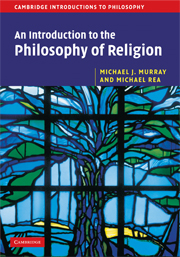Book contents
2 - Attributes of God: eternity, knowledge, and providence
Published online by Cambridge University Press: 05 June 2012
Summary
Many take comfort in the thought that God knows, down to the smallest detail, everything that the future holds. Nothing takes God by surprise. So we can be assured that whatever happens was foreseen by him and has a role to play in his sovereign, perfect plan. For some, the thought that God foresees but still permits the myriad causes of human pain and misery is troubling at best, morally repugnant at worst. But for many others, the belief that God has foreseen the disasters that befall us and the evils wrought against us is precisely what makes those things bearable.
Still, whatever comforts it may bring, the belief that God knows the future in full and fine-grained detail raises difficult philosophical problems. For example, we are accustomed to thinking of the future as open – which is just to say that future events do not exist, and facts about the future are not “fixed” in advance. Indeed, many of our attitudes toward daily decisions seem to presuppose that the future is open in this sense. You agonize today about whether to accept a job, or about whether to decline a marriage proposal. But would you agonize in the same way if you knew that the outcome was already fixed – that there was already a definite fact about what you would or would not do?
Information
- Type
- Chapter
- Information
- An Introduction to the Philosophy of Religion , pp. 35 - 63Publisher: Cambridge University PressPrint publication year: 2008
